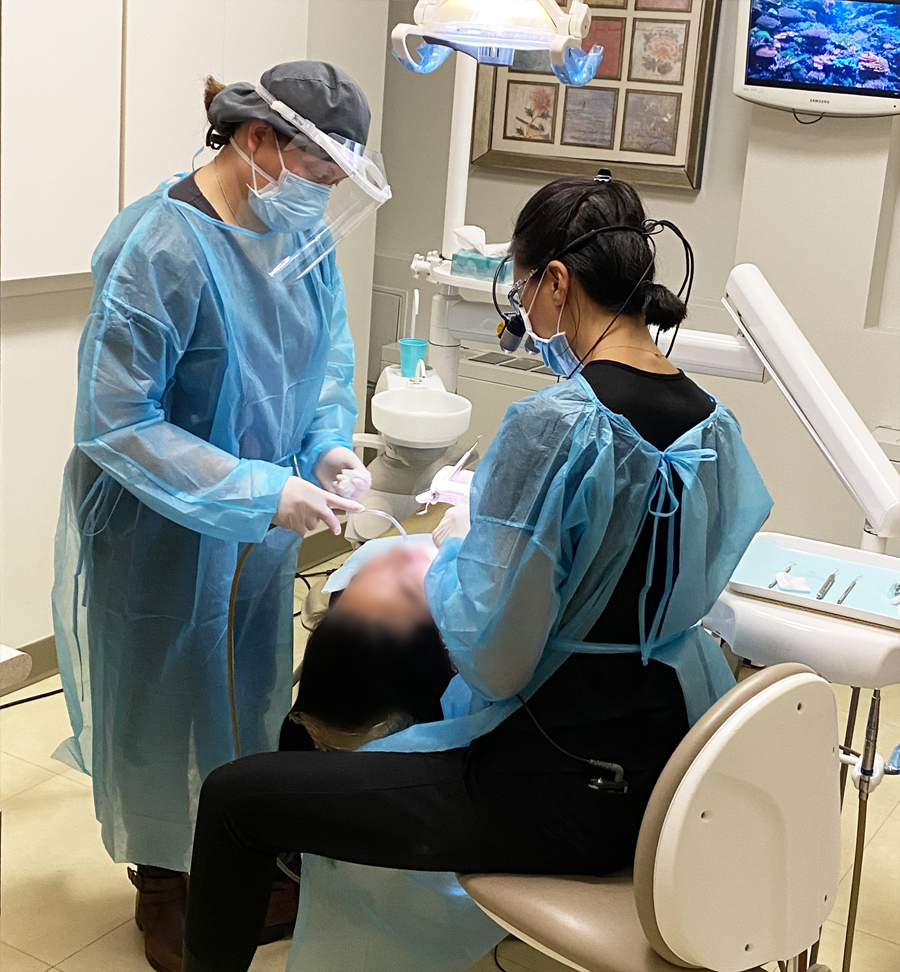Dental Implants Endeavour Hills: Cutting-Edge Innovation for Perfect Implants
Enhance Your Oral Health And Wellness Trip With Dental Implants: Everything You Required to Know Before Deciding
In the world of modern dental care, dental implants have actually emerged as a groundbreaking solution for people seeking to recover their oral wellness and reclaim their smile. The choice to start a trip towards oral implants involves mindful consideration of numerous aspects that can significantly influence one's overall health. From understanding the advantages and types of oral implants to browsing with the detailed procedure and post-surgery recuperation, each aspect plays a critical function in the success of this transformative procedure. However, prior to taking the following step, it is imperative to dig much deeper into the ins and outs of oral implants to make an informed choice that straightens with your oral health and wellness objectives.
Benefits of Oral Implants
Oral implants offer a wide variety of benefits for individuals seeking a long-lasting remedy to missing teeth. Contrasted to standard dentures or bridges, dental implants offer an even more stable and long-term choice for tooth substitute. One substantial advantage is the conservation of bone framework in the jaw. When a tooth is lost, the surrounding bone can deteriorate in time, causing a sunken face appearance. Oral implants function as man-made tooth origins, boosting the jawbone and protecting against bone loss.
Additionally, dental implants function and feel like all-natural teeth, enabling boosted speech and eating capability. Unlike removable dentures, implants are firmly secured in the jaw, removing any kind of worries regarding slipping or discomfort while speaking or eating. This security additionally contributes to enhanced confidence and self-worth for people with missing teeth, as they can smile and connect without bothering with their oral remediation shifting.
Kinds of Oral Implants

Endosteal implants are the most usual kind and involve surgically putting implants straight right into the jawbone. These implants are typically made of titanium and offer a solid structure for fabricated teeth.
Zygomatic implants are a less common type that are longer than standard implants and support right into the cheekbone as opposed to the jawbone. When there is inadequate jawbone for endosteal implants, these implants are utilized. Recognizing the various kinds of oral implants is crucial for both patients and dental experts to identify one of the most appropriate choice based upon specific requirements and conditions.
Oral Implant Treatment Review
A thorough review of the treatment for oral implants elucidates the complex actions entailed in accomplishing effective tooth replacement - dental implants endeavour hills. The process begins with an extensive assessment and examination to examine the client's oral health and determine the suitability for oral implants. Following this, the dental practitioner will operatively put the implant into the jawbone, where it will work as a strong foundation for the synthetic tooth
After the implant is positioned, a recovery period of several months is frequently necessary to permit osseointegration, throughout which the implant fuses with the bordering bone cells. A joint is attached to the dental implant to link the synthetic tooth once the dental implant has incorporated effectively. Ultimately, a personalized crown is fastened to the joint, completing the reconstruction process.
Throughout the procedure, people can expect thorough care and guidance from their oral team to make sure optimal outcomes. By understanding the numerous stages associated with dental implant positioning, individuals can make educated decisions regarding this resilient and efficient tooth substitute option.
Recuperation Process After Dental Implant Surgical Procedure
Upon completion of the oral implant procedure, go the healing procedure complying with surgical procedure plays an important duty in guaranteeing effective integration and healing of the dental implant. The immediate post-operative period is critical for the formation of embolism and the first stages of tissue recovery. Patients may experience some pain, swelling, and wounding in the days following surgical treatment, which can commonly be managed with recommended discomfort medicines and cold compresses.
Throughout the recuperation stage, it is necessary to adhere to all post-operative treatment guidelines given by your dental practitioner or dental doctor faithfully. It is advised to stick to a soft-food diet regimen at first to prevent putting excessive pressure on the dental implant website.
Normal follow-up consultations will certainly be arranged to keep track of the progress of the healing procedure and make certain that the dental implant is integrating well with the surrounding tissues. By following these recuperation standards, individuals can improve the success rate of their oral implant treatment and pave the way for a healthy, durable tooth substitute service.
Maintenance and Long-Term Treatment
Making sure appropriate maintenance and lasting treatment is vital for the longevity and success of oral implants. After the preliminary healing duration complying with the implant surgery, keeping great dental health practices is crucial to protect against issues such as peri-implantitis, a problem similar to gum tissue illness that can result in dental implant failure. Regular cleaning with a soft-bristled toothbrush, flossing, and making use of an antibacterial mouth wash are crucial components of dental care for oral implants.
Additionally, regular dental exams and cleanings are essential to check the health and wellness of the implants and bordering tissues. Your dentist will assess the security of the implants, look for any type of indicators of inflammation or infection, and make certain that the prosthetic teeth are functioning appropriately. X-rays may likewise be taken periodically to examine the bone framework and the stability of the implants.
It is vital to avoid routines that can compromise the implants, such as cigarette smoking or eating hard items - dental implants endeavour hills. By adhering to these maintenance standards and looking for regular expert treatment, you can help guarantee the long life and success of your dental implants
Final Thought

Zygomatic implants are a less usual kind that are longer than traditional implants and support into the cheekbone instead than the jawbone.After the implant is placed, a recovery period of numerous months is typically necessary to permit for osseointegration, during which the dental implant fuses with the bordering bone tissue. As soon as the implant has actually integrated efficiently, an abutment is affixed to the implant to great site attach the synthetic tooth.Upon conclusion of the dental implant procedure, the recuperation process complying with surgery plays a crucial function in ensuring successful assimilation and healing of the dental implant. After the initial healing duration following the implant surgical procedure, maintaining excellent oral hygiene practices is important to protect against problems such as peri-implantitis, a problem comparable to periodontal condition that can lead to implant failure.